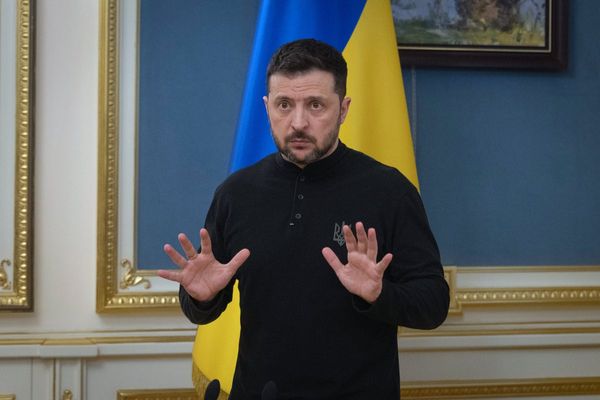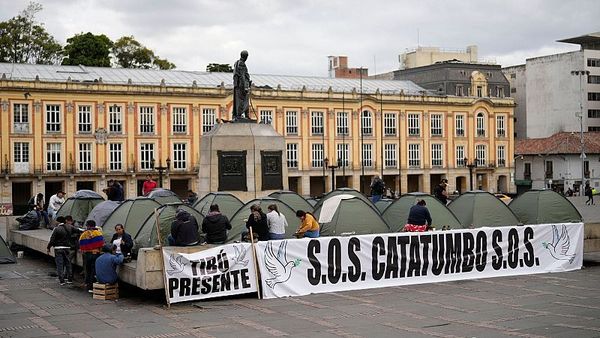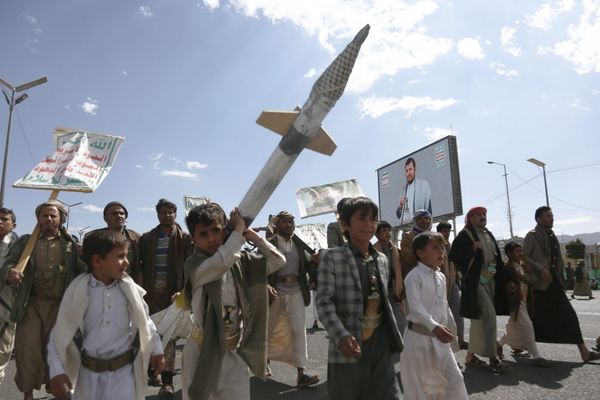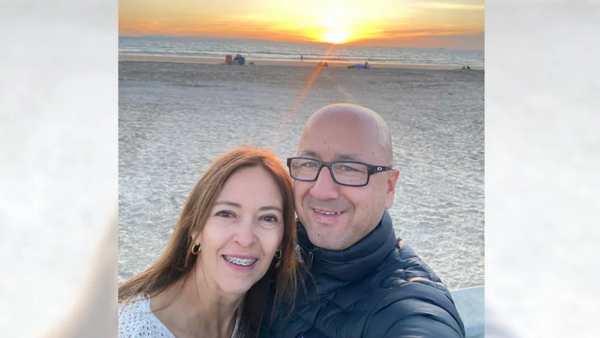
Negotiators met in Doha on Tuesday in an effort to hammer out the final details of a ceasefire in Gaza, as the warring sides were reported to be closing in on a deal and the US secretary of state, Antony Blinken, said the negotiations were “right on the brink”.
Israeli media and reports from the Qatari capital said the agreement would involve an initial release of 33 Israeli hostages, including children, women, elderly people and the sick, and up to 1,000 Palestinian prisoners, alongside a partial Israeli troop withdrawal in a first phase lasting 60 days.
After 16 days, talks would begin on a second phase of the agreement which would involve the release of other survivors among the 61 remaining hostages, including military-age men, and the bodies of those who have died. The Israeli military withdrawal would be completed in the course of this second stage.
Envoys representing the Biden White House and the incoming Trump administration are taking part in what was billed as a “final round” of talks, meeting delegates from Israel, Egypt and Qatar.
The US president-elect, Donald Trump, said negotiators were “very close” to finalising a deal that could halt the fighting which has claimed at least 45,000 Palestinian lives and left Gaza’s 2.3 million residents facing catastrophic conditions.
“I understand that there has been a handshake and they are getting it finished – maybe by the end of the week,” Trump told Newsmax on Monday night, as his envoy Steve Witkoff participated in the negotiations in Doha.
“The truth of the matter is that this ceasefire and peace deal is being driven by Trump’s team,” one Pentagon official told the Guardian. “And Biden, Blinken and the whole administration secured its legacy as enablers.”
Blinken said on Tuesday that the negotiations were “right on the brink” but a deal had not been concluded yet.
“It’s closer than it’s ever been before,” he said during a speech at the Atlantic Council. “But, right now, as we sit here, we await final word from Hamas on its acceptance, and until we get that word, we’ll remain on the brink.”
Blinken on Tuesday indicated that Israel had agreed to a deal and that mediators were now waiting for a response from Hamas. The Associated Press on Tuesday evening reported that Hamas had accepted the draft agreement for a ceasefire and the release of hostages, citing two anonymous sources involved in the talks. That information has not been confirmed by the group publicly and an Israeli official told the news agency that details of the agreement were still being finalized.
In the speech, Blinken also outlined a vision for a postwar settlement under which Israel would accept a united leadership of Gaza and the West Bank territories under a reformed Palestinian Authority, and criticised the expansion of both official and illegal settlements. Israel has so far rejected those conditions.
Blinken’s plan envisions significant involvement from the international community and Arab countries, including the possibility of deploying troops to stabilise security and facilitate humanitarian aid delivery. He also assessed that Hamas had “recruited almost as many new militants as it’s lost”.
Optimism over the negotiations has been tempered by past experience after earlier apparent breakthroughs ultimately failed to end the 15-month war in the face of opposition from the coalition government of the Israeli prime minister, Benjamin Netanyahu, or obstruction from Hamas inside Gaza. The militant group is being led by Mohammed Sinwar, brother of Yahya Sinwar, the former head of Hamas and the mastermind of the 7 October attacks who was killed by Israel last October after a year-long manhunt.
Despite the talks, fighting in Gaza has continued. Late on Monday night, two Israeli airstrikes in the central city of Deir al-Balah killed two women and their four children, aged between 1 month and nine years old. Another 12 people were killed in two strikes on the southern city of Khan Younis.
Separately, at least six Palestinians were killed and several were injured late on Tuesday in an Israeli strike on Jenin in the West Bank.
Israel’s security minister, Itamar Ben-Gvir, declared his continued opposition to the agreement in a social media post on Tuesday in which he boasted that he and other far-right members of the coalition had blocked a ceasefire “time after time” in recent months. He appealed to a fellow hardliner, Bezalel Smotrich, to join his party in walking out of the coalition if Netanyahu accepted the deal under discussion.
On Monday, Smotrich, the head of one of the parties in the ruling coalition, denounced the agreement being worked out in Qatar as a “surrender” deal. “The deal that is taking shape is a catastrophe for the national security of the state of Israel,” he said.
Writing in the Haaretz newspaper, the military analyst Amos Harel said the weakest point in the blueprint being negotiated in Doha was the transition from the first to second phase.
“Negotiations on the second phase are supposed to begin on the 16th day after it is signed, while the first phase is being implemented,” Harel wrote. “The understandable fear shared by the hostage families is that these talks will collapse, and that the only hostages that will be brought back are those from the first, humanitarian phase, namely women, elderly men, the sick and the wounded. Soldiers and young men will remain captives of Hamas for a long time as an insurance policy on the lives of the organisation’s leaders.”
Biden proposed a phased ceasefire plan in May last year, claiming it was an Israeli-approved blueprint, but he was repeatedly frustrated by Netanyahu’s obstruction. Trump has reportedly sent repeated messages to Netanyahu that he wants the fighting to be over before he takes office on 20 January.
On Tuesday, representatives from the Hostages and Missing Families Forum met Netanyahu, who told them that talks were advancing and he was “doing everything he can to bring about the release of all hostages”, according to Israel’s Channel 12.
“There are radical members such as Ben-Gvir and Smotrich who are obstructing the deal,’’ Moshe Emilio Lavi, the brother-in-law of one of the hostages held by Hamas, told the Guardian. “They are exploiting the hostage deal because they have other interests, like re-establishing settlements in northern Gaza. I just hope the government is not going to make an unwise decision this time.’’







